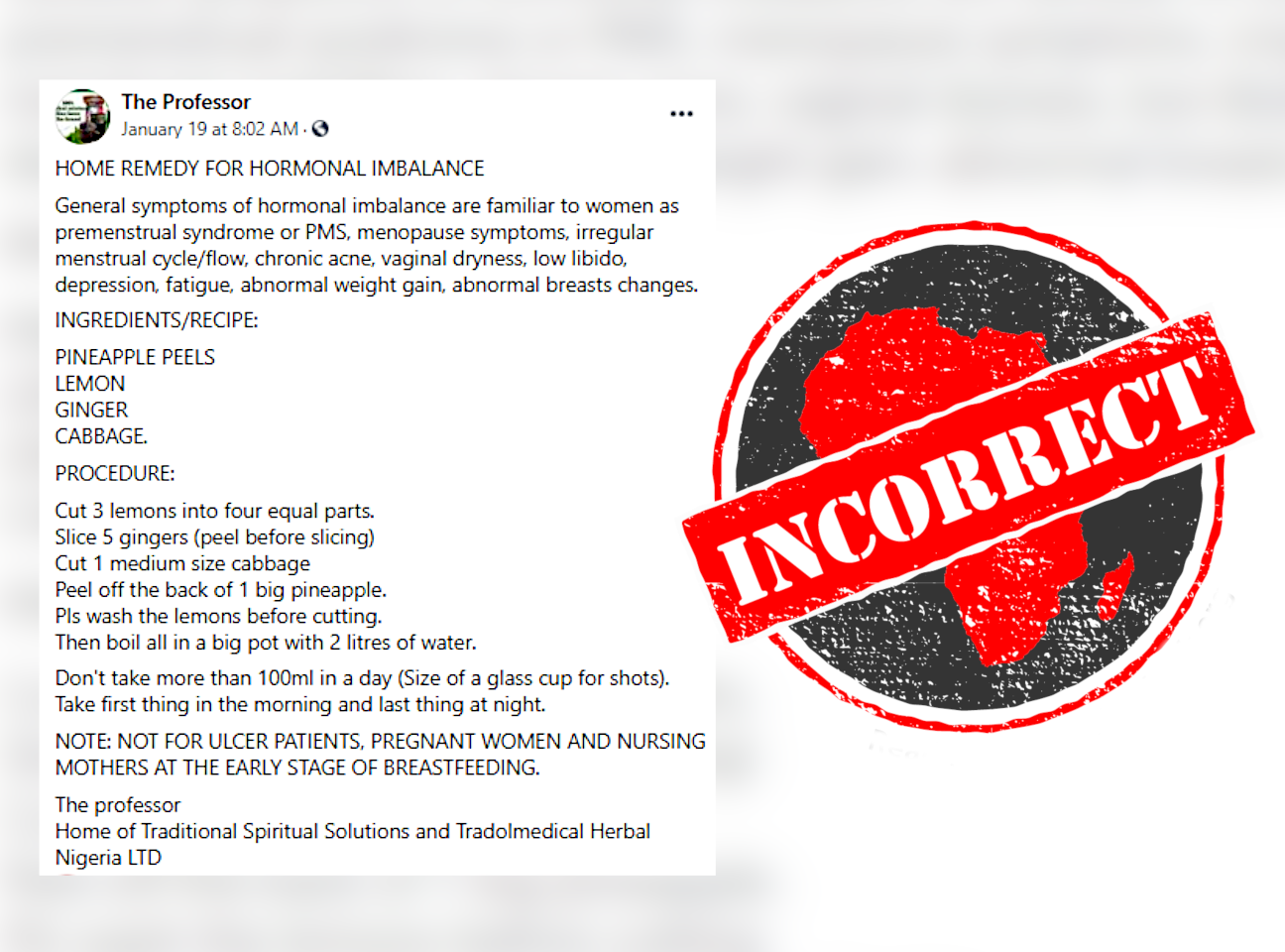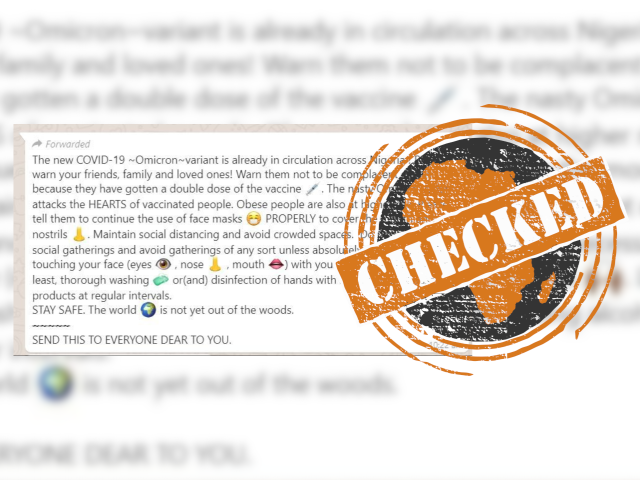A post on the Nigeria-based Facebook page “The Professor” claims a mixture of pineapple peels, lemon, ginger and cabbage is a “treatment” for hormonal imbalance.
It describes how to prepare and take the mixture, ending with: “NOT FOR ULCER PATIENTS, PREGNANT WOMEN AND NURSING MOTHERS AT THE EARLY STAGE OF BREASTFEEDING.”
Hormonal imbalance is when there is too little or too much of a certain hormone in the bloodstream. Its symptoms can include excessive sweating, heart rate changes, dry skin or sudden acne, anxiety or other mood changes, and blurred vision.
But is there any scientific evidence that this simple home remedy will treat hormonal imbalance? We checked.

Treatable, but see a doctor
Patrick Igbigbi, a professor of human anatomy at Nigeria’s Delta State University, said the Facebook post was wrong.
“There is no scientific evidence to support this claim,” he said. “I haven’t read any study on it.”
He added that a doctor would need to find out exactly which hormone or hormones were responsible for the imbalance, before treatment.
“The best advice I can give is to visit a doctor. He or she would be able to unravel the root cause and give proper treatment."
Republish our content for free
For publishers: what to do if your post is rated false
A fact-checker has rated your Facebook or Instagram post as “false”, “altered”, “partly false” or “missing context”. This could have serious consequences. What do you do?
Click on our guide for the steps you should follow.
Publishers guideAfrica Check teams up with Facebook
Africa Check is a partner in Meta's third-party fact-checking programme to help stop the spread of false information on social media.
The content we rate as “false” will be downgraded on Facebook and Instagram. This means fewer people will see it.
You can also help identify false information on Facebook. This guide explains how.





Add new comment